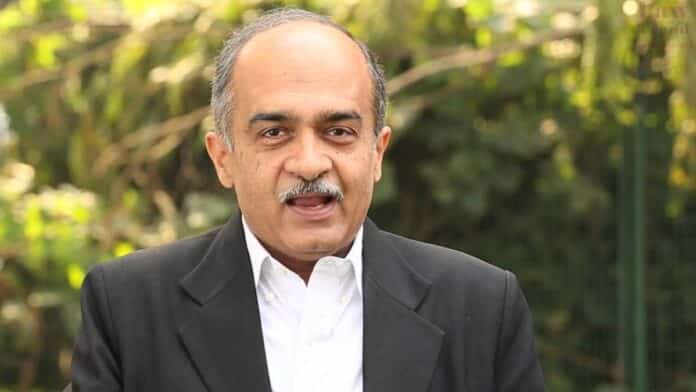In a charged press conference held in Bhopal, prominent Supreme Court lawyer and social activist Prashant Bhushan accused the current BJP government of engaging in what he described as the “world’s biggest scam” through the use of electoral bonds. Bhushan’s remarks come amidst a heated national debate over the controversial funding mechanism, with both ruling and opposition parties hurling accusations at each other.
Bhushan asserted that a significant portion of the funds raised through electoral bonds has been used as bribes to secure lucrative government contracts worth millions. He questioned the transparency of the transactions, pointing out the lack of disclosure on how many bonds were purchased and which political parties benefited.
“The sheer scale of the transactions facilitated by these bonds indicates potential large-scale bribery involving major corporations and political parties,” Bhushan stated. He highlighted that the data released following a landmark Supreme Court decision reveals that companies receiving major projects had donated substantial amounts to ruling parties through these bonds.
Adding to the controversy, Bhushan claimed that during the COVID-19 pandemic, life-threatening drugs were distributed in exchange for bribes facilitated by electoral bonds. He called for an independent and thorough investigation to identify all parties involved, including political figures and regulatory agencies.
The activist underscored the need for a Supreme Court-monitored Special Investigation Team (SIT) to delve into these allegations. He noted that a petition for the formation of such a team has already been filed by Common Cause and the Center for Public Interest Litigation, following the Supreme Court’s historic ruling on February 15, 2024, which declared the electoral bond scheme unconstitutional and halted its further sale.
Also Read
The Supreme Court’s decision was based on the violation of Article 19(1)(a) of the Constitution, which pertains to the voter’s right to information. Bhushan emphasized that this ruling not only underpins the need for transparency but also the urgency of addressing the alleged corruption linked to electoral bonds.




